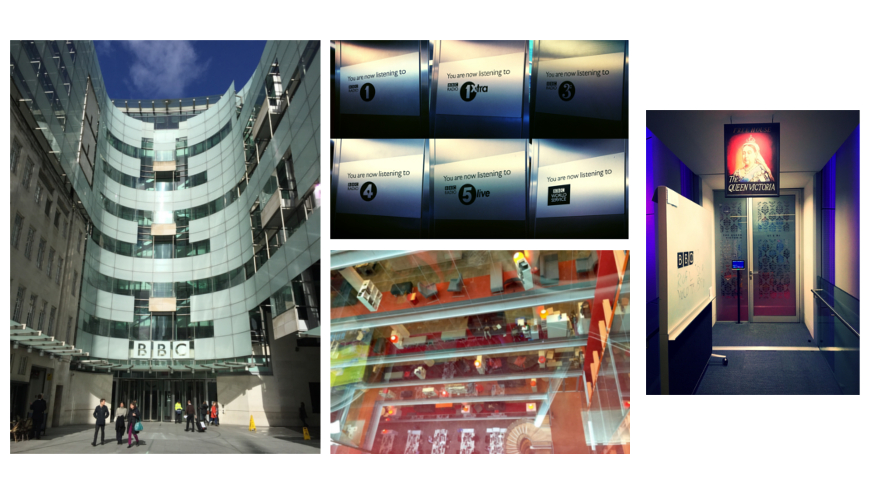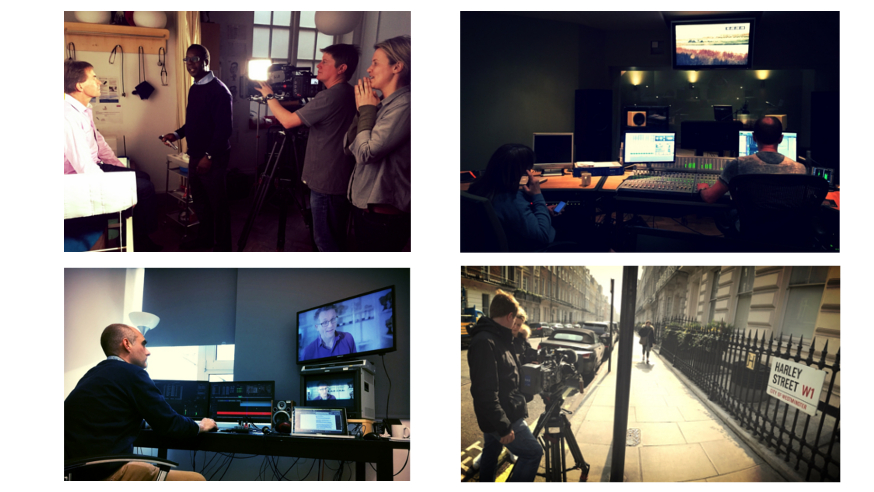Creative types
In the fifth and final essay short-listed for the ICR's Mel Greaves Science Writing Prize 2015, Dr Chris Tape discovers what it's like to communicate science to millions of people.
As a part of my Wellcome Trust postdoc I’ve spent the last month working as a researcher for the BBC Science Division. Given this is an unconventional way for a scientist to spend their time, I thought I’d share some insights from inside the BBC.
On location
The BBC Science Division is based in New Broadcasting House, London (AKA W1A). To my lab-weary eyes, the BBC headquarters makes an exciting first impression. It’s a colourful hive of wide-eyed creativity and celebratory heritage. Offices are named after classic BBC locations (I worked in Nelson Mandela House). Our team meeting room was inspired by The Queen Vic. Even the elevators proudly broadcast BBC radio. (Note: the 1Xtra lift is genuinely stressful. There’s a reason why grime isn’t normally played in claustrophobic boxes transporting the middle-class.)
It’s an exciting environment. But beyond the glossy media facade – and my quest to find all the Dr Who meeting rooms – there was work to do. And I was lucky enough to work with the best: BBC Horizon.
But beyond the glossy media facade – and my quest to find all the Dr Who meeting rooms – there was work to do. And I was lucky enough to work with the best: BBC Horizon.
I’ve always been a fan of Horizon. With a 50-year heritage and an international audience, it’s arguably performed more science communication than any other production. I have a huge amount of respect for anyone who popularises science well. Horizon are some of the best.
It’s a diverse show and my time at Horizon reflected that. One day I would be researching private moon exploration – the next, local science-community relations. Some days you’re hunched over a laptop in the office – the next, you’re traversing London with a film crew.
Fortunately I got to see the whole process. From initial idea conception, research and treatment writing – all the way through to filming, editing and sound mixing. I even managed to get my dad on telly.

Obviously, rambling with film crews and ruminating on editing sofas is unlike anything I normally do in the lab. However, I went to Horizon knowing that (unless they give me my own TV show) I’ll still want to be a scientist afterwards. So why the sojourn?
What did I learn from the BBC?
Priorities
Well firstly, I learnt that communicating science on TV requires a respect for the interests of millions of people. Most scientists don’t think on this scale.
We care about our peers, our field, maybe our 100 twitter followers. But that’s it. We rarely think: ‘What would 2 million people think about this?’ Making a show that the entire nation can watch re-calibrates priorities.
For the most part, this general-public appreciation was insightful. It was a healthy, empathetic exercise.
However, for me, public-consideration had one disturbing outcome: ‘audience-value’ is often prioritised over ‘scientific-value’. That is, the televisual value of scientific content is judged by whether the public are already interested in it. The presumption being that no one will watch a science programme on a topic they don’t already care about.
This ‘audience-value’ > ‘scientific-value’ paradigm was the hardest thing for me to stomach at Horizon. Pitching idea ‘X’ would often raise the following audience imitation: ‘Yes, but it’s 9pm on a Tuesday. I’ve been at work all day. I’m tired. Do I really want to watch a show about ‘X’?’. I understand why TV professionals think like this. There are 500 channels of competition, and ratings matter.
But it’s this thought process that produces ‘science’ shows about cats.
I think the challenge of science communication is to make people care about something they don’t know they care about. Or as Oliver Burkeman says of writing generally: “The idea is to help them [the audience] discern something you know they’d be able to see, if only they were looking in the right place.”
Not to educate people on what they already care about.
Scientific communication should be better than that. It’s not about topping up knowledge. It’s about raising consciousness.
The target isn’t public interest. The target is public ignorance. And it’s the job of science communication to quench ignorance using the narrative process – not because a pre-existing narrative interest already exists.
Carl Sagan didn’t care about how tired you were on a Tuesday night. He aspired to make something so compelling, and so beautiful, that 35 years later we’d still be talking about it. I wasn’t looking for how beautiful the universe could be until he showed me. That should be the goal.
Not every Horizon episode falls foul of this. For example, recent episodes such as ‘Secrets of the Solar System’ and ‘Dancing in the Dark - The End of Physics?’ discuss topics with very little inherent public interest. In particular, ‘Aftershock: The Hunt for Gravitational Waves’ even showed the scientific method in a way I’ve been craving for years.
So it’s not all bad. I just want Horizon to be better than that. Not crippled by ratings pragmatism. But I’m just one of the two-million people they’re writing for and I don’t like cats. No single opinion can represent the audience.
Creativity
Surrounded by all these media-folk, I also achieved a new appreciation for what creativity means in science.
I’ve always thought of media people as ‘creative types’. Compared with us drab scientists they’re contemporary, fashionable and flamboyant. They have neo-ironic clothes, calculated haircuts and Instagram addictions. They design, produce and create. They’re bohemian right-brainers.
Scientists – conversely – reside at the other end of the spectrum. We’re perceived as meticulous, comprehensive, insipid-types. Our beards are sincere. Our glasses prescribed. Straight-up left-brainers. We can’t possibly be creative.
This dichotomy is utter bullshit.
For a start, the BBC is full of nerds. Producing world-leading television is not a job for materialistic hipsters. This is straight-A territory. These media-guys are incredibly smart.
Secondly, far from lacking creativity – in the context of factual TV – scientists are the creativity. Scientists are the content. Scientists produce the stories. Without scientists there is nothing to film.
Whether they realise it or not (I certainly didn’t), scientists spend their entire lives creating content – and media-types like those at Horizon need it.
Re-packaging scientific content into good factual TV shows is really hard. I’ve got a new-found respect for how hard it is. Producing 15 hour-long factual documentaries a year to the quality and diversity Horizon achieves is seriously impressive.
But just because they author fancy graphics, orchestral scores and celebrity voice-overs – the media are not the ‘creatives’ in scientific communication. They are (very good) reporters.
So if I’ve learnt anything from the BBC Science Division it’s this: scientists are the true creatives.